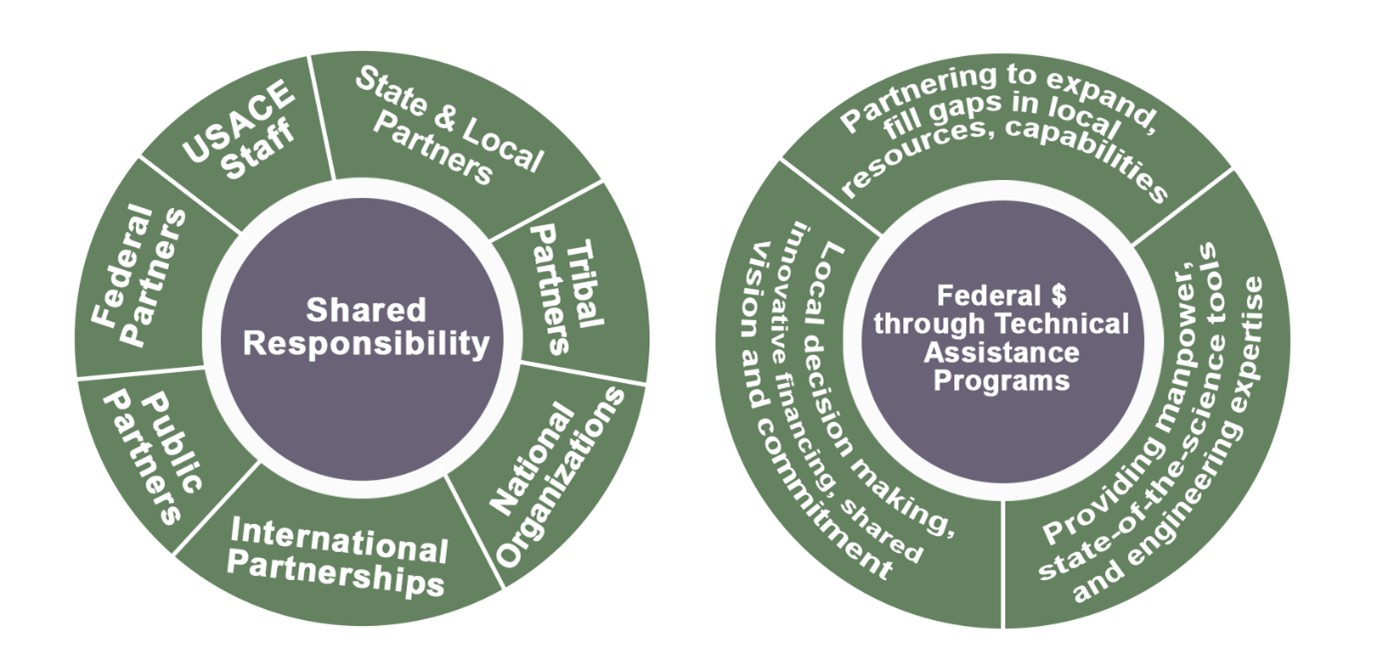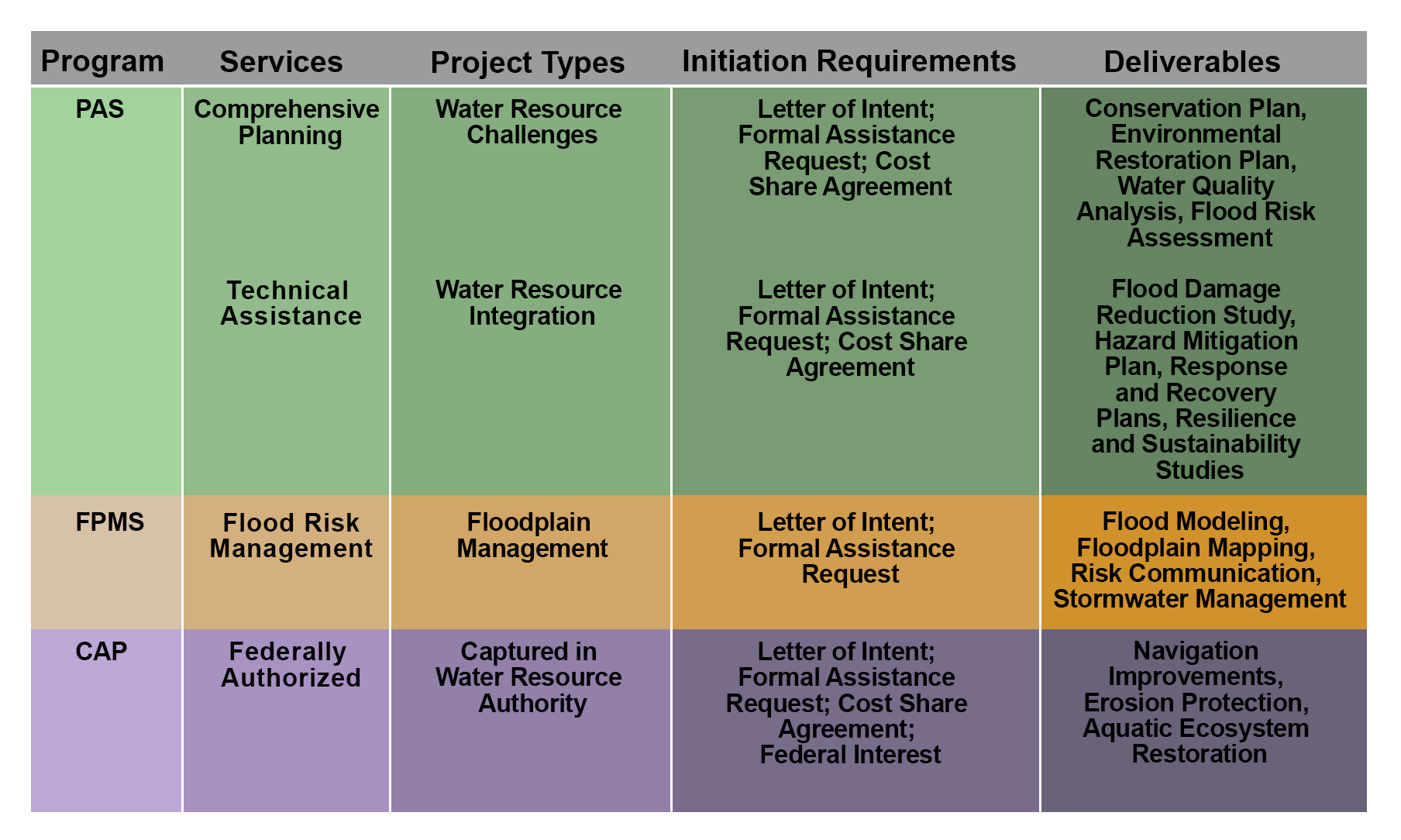Water, an essential resource to the Nation, represents complexities that encompass environmental, social, cultural, legal, and economic concerns. As such, water resources often require varying degrees of planning solutions. The PAS program facilitates the US Army Corps of Engineers’ (USACE) mission in assisting States on an array of water resource planning. Authorized by Section 22 of WRDA 1974, as amended (42 U.S.C. &1962d-16), the PAS program helps states, local government, non-Federal entities, and federally recognized Native American Indian Tribes to plan for the use, development, and conservation of water and related land resources. Flexible in scope, PAS studies can build on existing data to develop the basis for local planning decisions. In other study scopes, PAS efforts address information gaps related to a site-specific water resource to better identify problems and opportunities. The length of PAS studies depends on the scope. Some studies can be completed in a few months from receipt of funds, while others may take a full 12 months. In some cases, multi-phased studies can be completed over the course of 2 years, subject to the availability of Federal funds.
Because USACE is not authorized to design or construct under this program, plan implementation may be carried out by the partner. PAS programs are funded annually by Congress and are cost shared (50%/50%) with the study partner. The process for PAS investigations begins after a state, regional, local government, or Native American Indian tribe requests Corps of Engineers assistance under the program.
There are two types of efforts available through the PAS program: Comprehensive Plans and Technical Assistance Programs.
Comprehensive Plans
Comprehensive Planning is a type of water resource planning available through the PAS program to plan for the development, use, and conservation of water and related resource, for example, through a state water plan. Comprehensive plans can also extend across state boundaries if the States or partners agree. Comprehensive Planning opportunities include flood risk management, water supply and conservation, environmental restoration, water quality, hydropower, erosion, navigation, fish and wildlife, cultural resources, and environmental resources.
Comprehensive planning activities are cost shared (50%/50%) with the study partner, and funds in excess of the cost share may be voluntarily contributed by the non-Federal partner. The non-Federal cost share for preparing a state comprehensive water resource plan may be provided by funds through the provision of services, materials, supplies, or other in-kind services.
Technical Assistance Program

The purpose of Technical Assistance (TA) programs is to leverage resources in a constrained environment to address diverse water resource issues. Technical Assistance offers a variety of hydrologic, economic, or environmental data and analysis, state hazard mitigation, preparedness, response, and recovery related to changing hydrologic conditions, climate change, long-term sustainability, and resilience.
TA activities are cost shared (50%/50%) with the study partner, and funds in excess of cost share may be voluntarily contributed by the non-Federal partner. The cost share for TA must be provided by funds (not in-kind). This allows USACE to provide deliverables to sponsors, empowering them to make risk-informed decisions for their communities.
